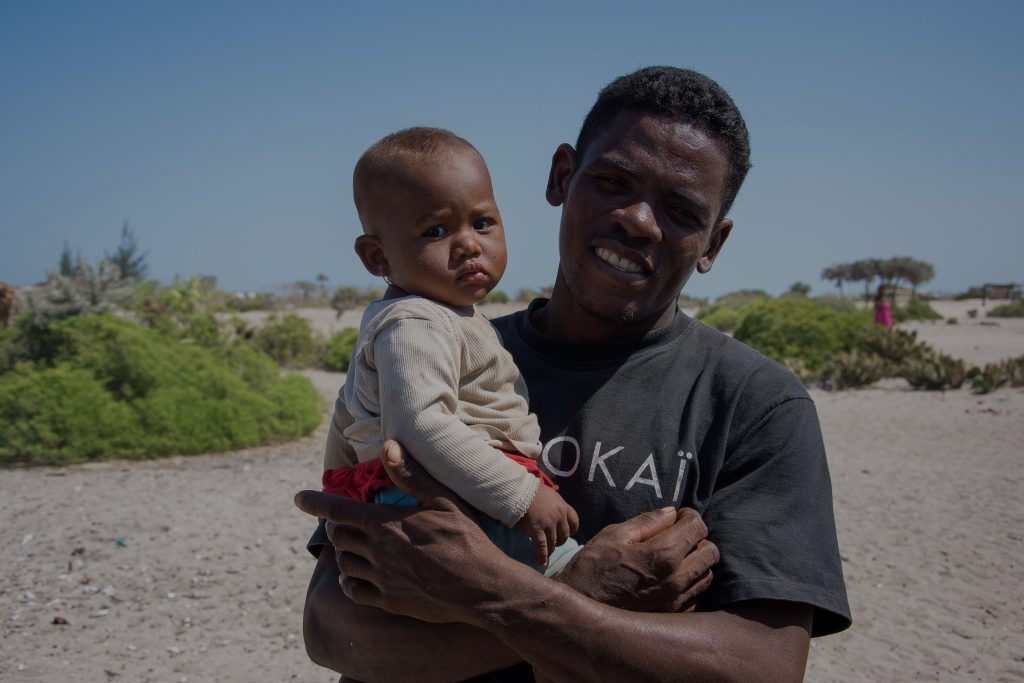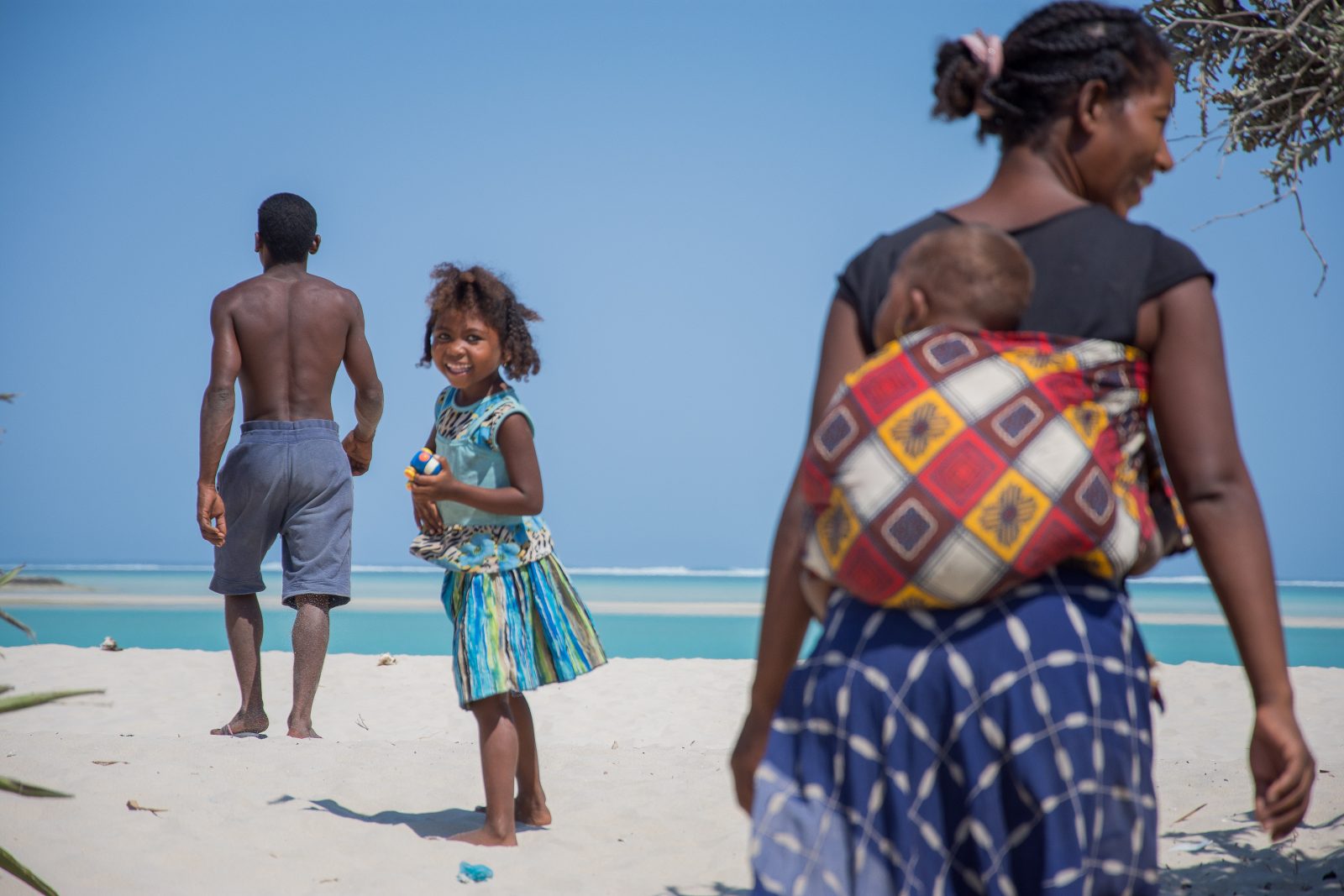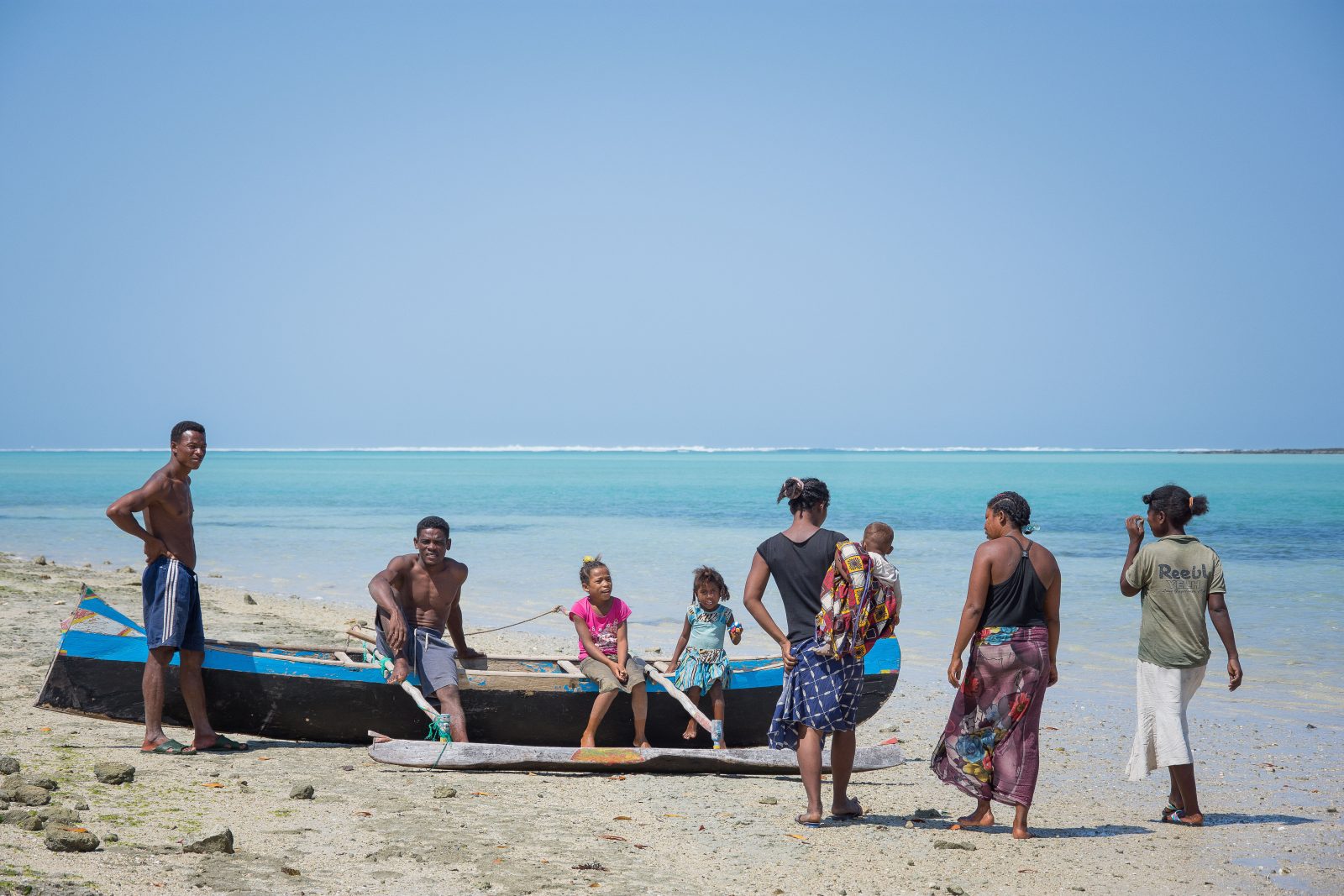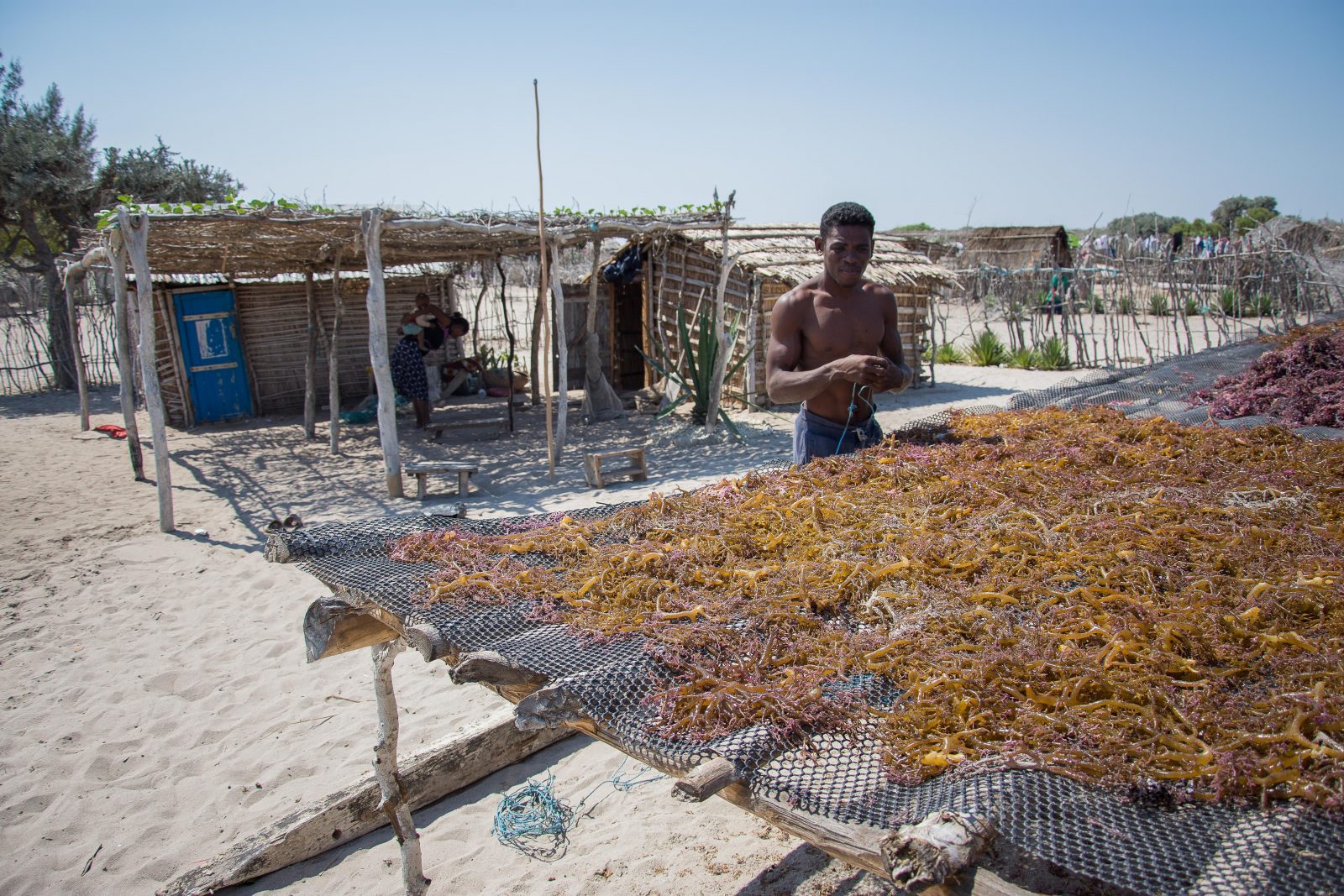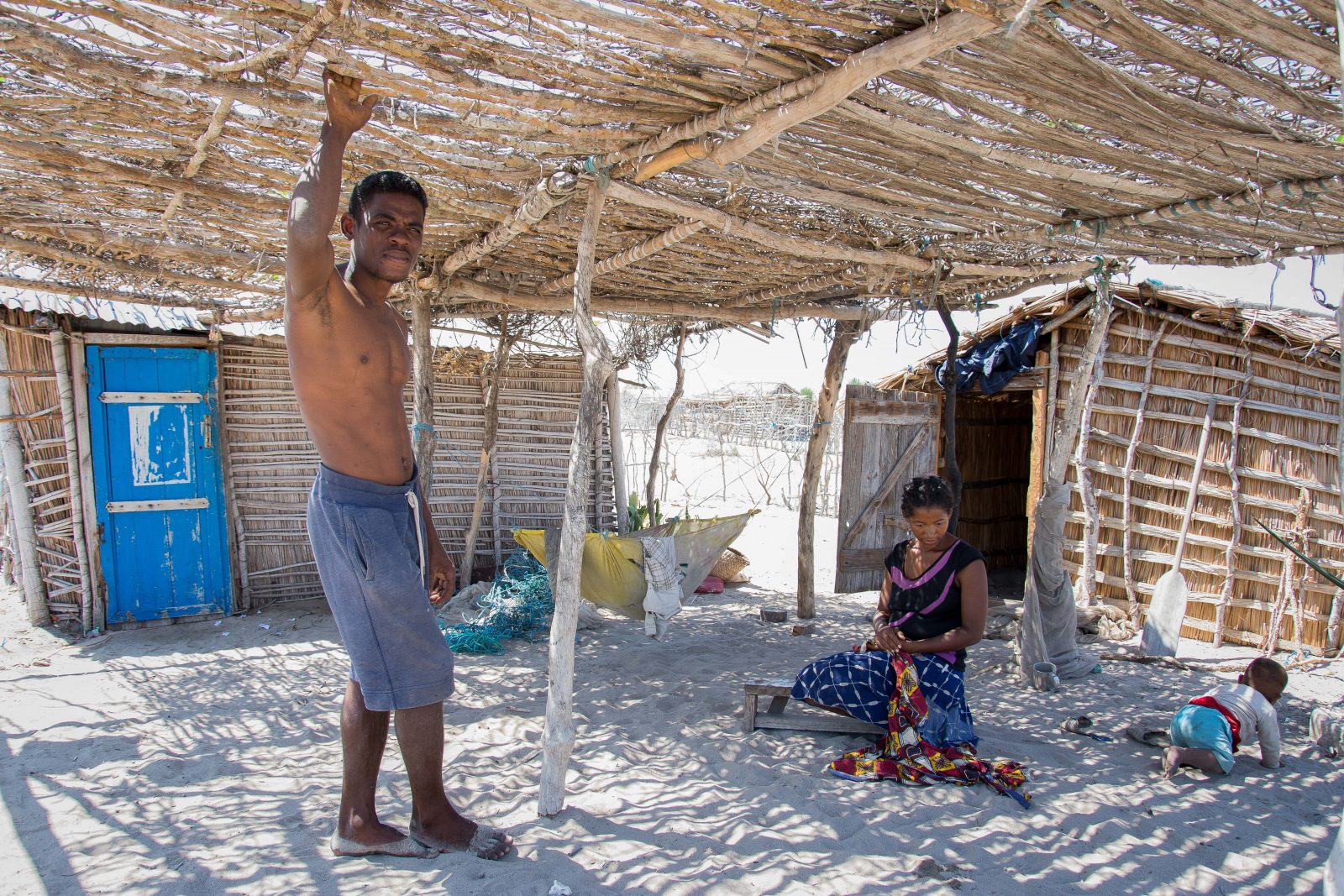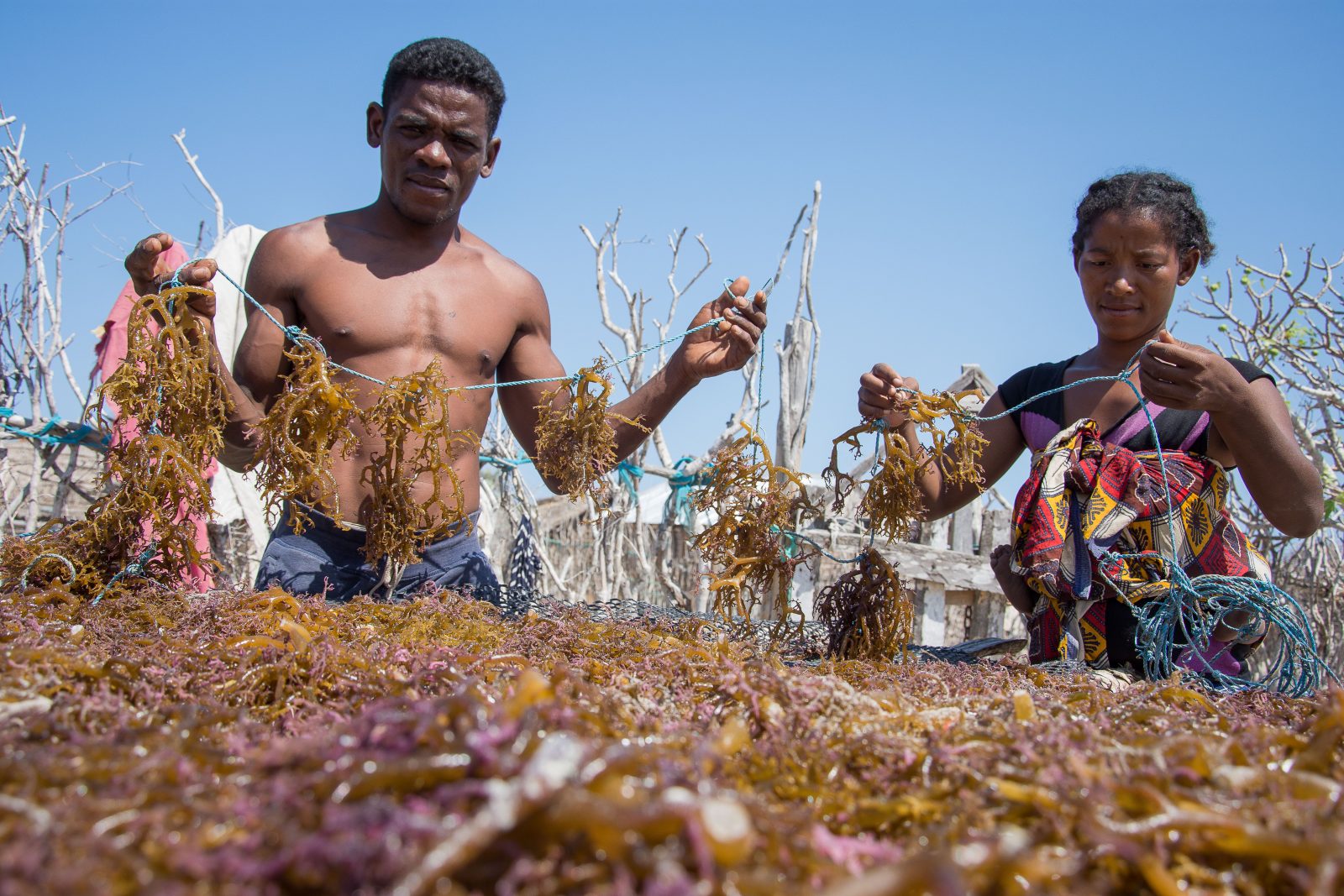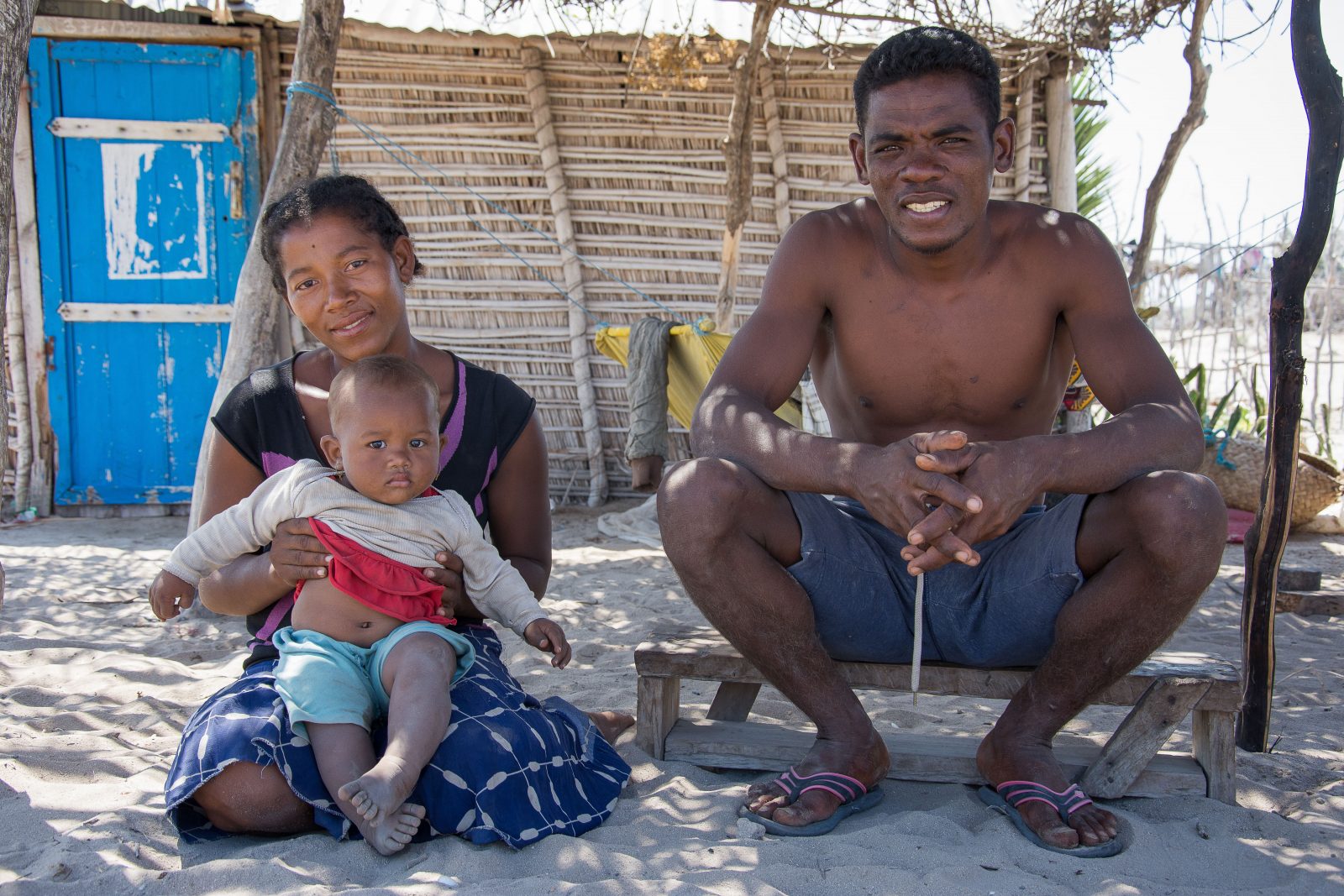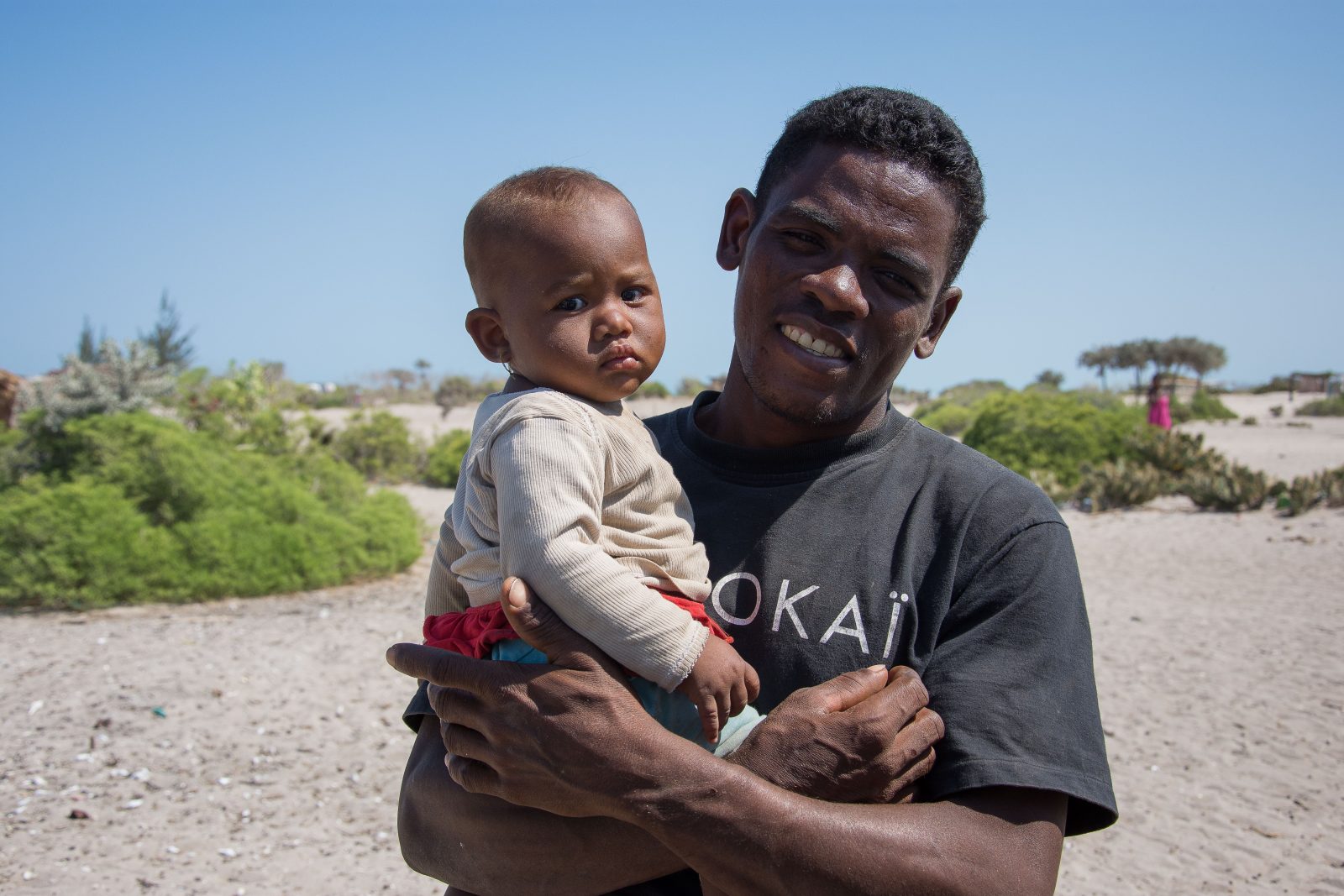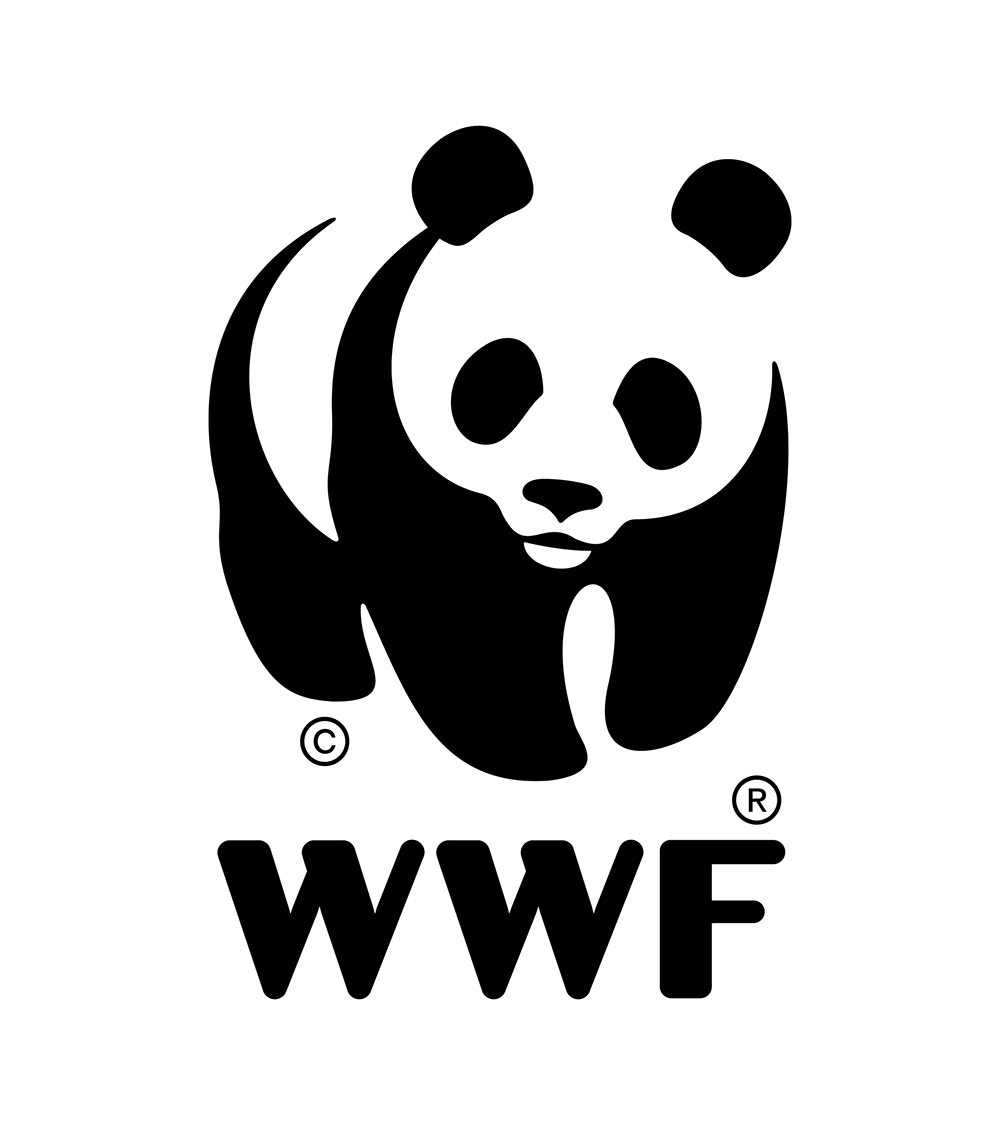What is your earliest memory of the ocean?
My father died when I was a teenager. My mother couldn’t support us by herself, so we had to drop out of school. My grandfather decided to take us to Anakao, where he taught us everything we needed to know about fishing so we could find a job. I used the money I earned by being a fishermen to support my mother and the rest of my family. A couple of years later, I managed to buy the land I currently live on and I built a house for my wife and children.
What changes are you witnessing in the ocean and how do these changes affect you?
We used to be able to predict the currents and tides of the ocean by watching the sky and feeling the wind and its direction. Unfortunately, we are not able to do that as accurately as before. The ocean is changing unpredictably, and so are the winds. They’re a lot stronger than before. Sometimes the conditions are so extreme that we cannot bring our pirogues (small, traditional fishing boats) to the sea. The wind would break our sails and could sink our materials. In those situations, we just have to wait for the storm to pass. Last time, we had to wait for an entire week. However, sometimes I decided to take the risk and I went fishing anyway. There I was, in the middle of the ocean, wondering how I could provide for my children if I couldn’t bring back any fish. I decided to come up with an alternative.
So, what is the alternative you came up with? What do you do to contribute to shifting this change in a positive way?
We started seaweed farming! As Vezo, officially we’re fishermen, so this was definitely a second choice at first. My wife Martine and I never expected that it would assure almost half of our income nowadays. Thank God we found this. We will definitely continue our seaweed farming. Our bay is perfect for it, as the reefs protect the algae cultures and the water stays warm all day.
For me, children are the best heritage: I hope that my production will increase then I can insure a better future for my children, for them to have diploma
“There I was, in the middle of the ocean, wondering how I could provide for my children if I could not bring back any fish.”
In 2030, what does the ocean look like according to you?
Personally I don’t know what to expect. But for sure I see our little bay as still being a nice farmland for algae culture to our village. Our reefs protect it; the water is warm all day. We will continue seaweed farming.
Thanks for sharing your story; you’re an Ocean Witness now. What do you want to say to other Ocean Witnesses?
If changes in the ocean and winds in your area are getting hard to manage and you are struggling to provide for yourself and your family, find alternatives to survive. When you find it, stick to it and work on improving the quality of your product.
About Christophe
Christophe is a fisherman and seaweed farmer in the village of Ankilimionga in the Southwest region of Madagascar. He was 17 when he started fishing activities in Anakao. Christophe, together with his wife Sarah and their children, belong to the “Vezo”, the traditional fishermen tribe on this part of the oceans. They have adopted seaweed farming as an alternative source of income, due to decreasing fish populations and wanting to protect their beloved ocean.
